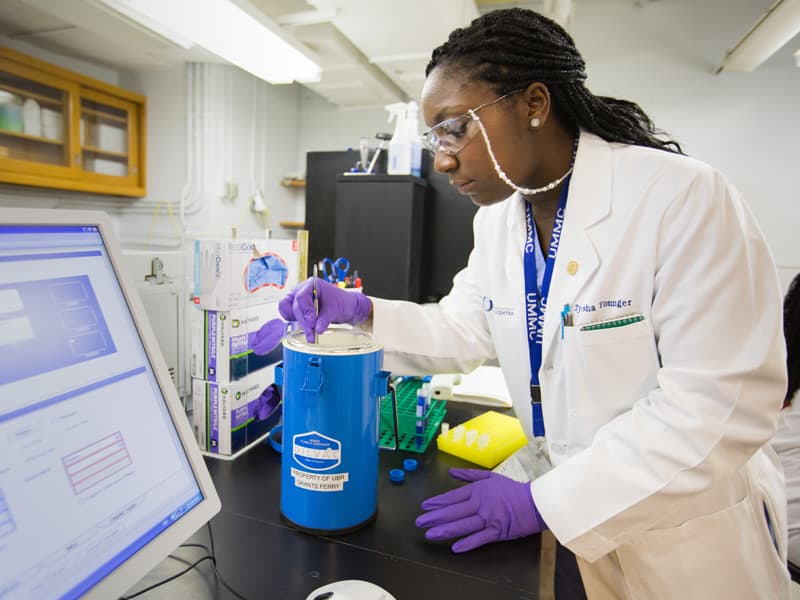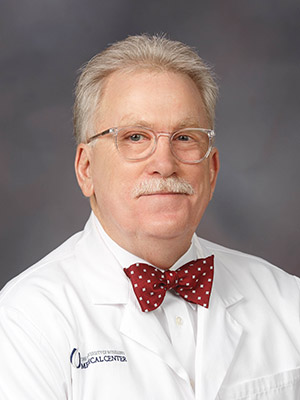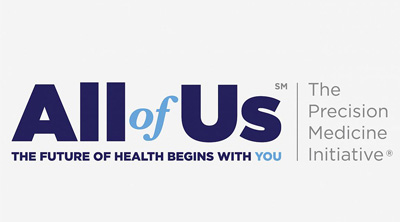UMMC joins national 'All of Us' precision medicine study

Mississippians will soon have the chance to participate in one of the largest studies of human health ever planned.
The National Institutes of Health selected the University of Mississippi Medical Center as a Health Care Provider Organization for the nationwide All of Us Research Program.
Proposed in 2015 as the Precision Medicine Initiative, All of Us aims to enroll at least one million Americans of all backgrounds and health histories in a long-term study to better understand health and disease.

Dr. Gailen Marshall, R. Faser Triplett Chair of Allergy and Immunology and medical director of the Clinical Research Support Program and Clinical Research and Trials Units, will serve as the principal investigator for UMMC’s site.
“The purpose is similar to that of other biobanking projects,” Marshall said. “To improve our testing and laboratory protocols, and to look for markers of disease.”
Researchers will use the data collected from volunteers to study on a variety of health conditions and learn more about the impact of differences in lifestyle, environment and biology. As an HPO, UMMC will help design research protocols, enroll participants and collect health data and biological specimens.
The plan is for UMMC to conduct a pilot test of the program by collecting data from 50 individuals in 2018. This will assure that the Medical Center’s resources and the research protocols are “sufficiently developed” to embark on the study, Marshall said. Then, UMMC will look to enroll about 7,500 new volunteers over four years.
“I think we will be readily able to meet that goal through engaging community members and our current patients,” Marshall said.
UMMC will be part of the All of Us Southern Network. This group includes the University of Alabama at Birmingham, Tulane University and Louisiana State University Health Sciences Center – New Orleans, all of which the Medical Center already works with on clinical and translational research.
The NIH invited UMMC and the institutions to join the study to extend its geographic reach and strengthen its presence in lower-income, rural and minority populations.
“Each of our hospitals serves largely minority populations,” Marshall said.
All of Us needs diversity to achieve its primary goals. As its former name suggests, the program aims to accelerate precision medicine. This approach emphasizes giving patients the treatments most appropriate for their own biology, rather than a one-size-fits all approach.
 “One of the ultimate goals is to utilize and collect genetic material to study pharmacogenomics,” Marshall said. This subcategory of precision medicine is concerned with how a person’s genes affects their response to drugs. With a study of this size, researchers can ask and answer meaningful questions about both common and rare health conditions and their relationship to genetics.
“One of the ultimate goals is to utilize and collect genetic material to study pharmacogenomics,” Marshall said. This subcategory of precision medicine is concerned with how a person’s genes affects their response to drugs. With a study of this size, researchers can ask and answer meaningful questions about both common and rare health conditions and their relationship to genetics.
Senator Thad Cochran announced the Medical Center’s participation in an August 29 news release.
“The University of Mississippi Medical Center has long been a national leader in physiology, and this expertise can improve research to discover more precise treatments and cures for diseases,” Cochran said in the release. “I am pleased the NIH is strengthening its research links to Mississippi.”
“We want this program to reflect the rich diversity of our country,” said All of Us national director Eric Dishman in a news release. “Working with participants across the country, we hope to contribute to medical breakthroughs that may lead to more tailored disease prevention and treatment solutions in the future.”
Marshall notes that All of Us is distinct from UMMC and Mayo Clinic’s Biobank 10K Project. While both have similar methods and goals, they differ in scale and scope. All of Us is a national effort with a one million-volunteer target and hundreds of participating sites, each of which will have access to all of the data the study generates. The 10K project is seeking 10,000 participants; their data is accessible by UMMC and Mayo Clinic researchers.
UMMC still has several months of planning and preparation before fully engaging with All of Us, but Marshall looks forward to the opportunity.
“All of Us has the potential to help us find solutions for cancer, cardiovascular disease, diabetes, asthma and many other chronic conditions,” Marshall said.
People who are interested in learning more about the study may visit https://allofus.nih.gov.


